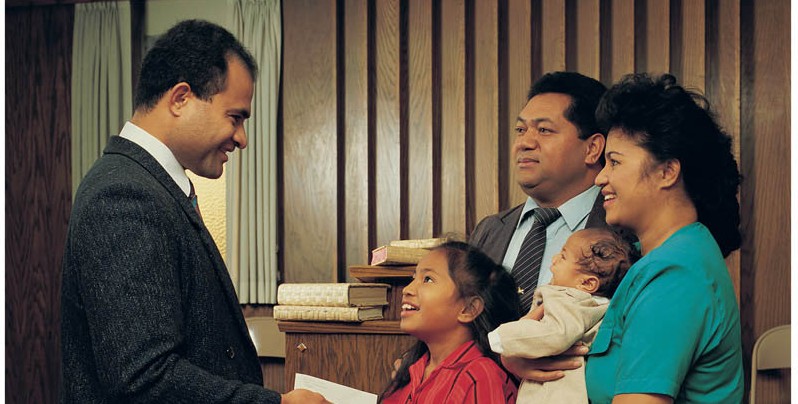Question
Gramps,
What’s the purpose of tithing settlements?
Doug
Answer
Doug,
Tithing is a foundational principle within The Church of Jesus Christ of Latter-day Saints, serving as both a financial commitment and a spiritual practice. One significant aspect of this practice is tithing settlement, which occurs annually and offers church members an opportunity to reflect on their contributions, reaffirm their commitment to God, and engage in meaningful conversations with their bishops.
Before exploring tithing settlement, it is important to understand the principle of tithing itself. According to the Doctrine and Covenants 119:4, members are commanded to pay “one-tenth of all their interest annually.” This means that tithing is not merely a suggestion but a divine mandate with spiritual significance. Members of The Church believe that fulfilling this obligation brings blessings from the Lord, as emphasized in Malachi 3:10, which promises,
Bring ye all the tithes into the storehouse… if I will not open you the windows of heaven, and pour you out a blessing, that there shall not be room enough to receive it.
Tithing settlement provides an essential opportunity for members to review their contributions over the past year. This process ensures that donations are accurately recorded, allowing individuals to confirm that they have fulfilled their commitment to pay a full tithe—defined as 10% of their increase. Tithing settlement allows members to “verify that they are correctly recorded” and to review all personal statistics related to their contributions. This review is particularly important as it reflects members’ accountability not only to the Church but to God.
Another crucial aspect of tithing settlement is the declaration of full tithe payer status. This declaration is vital because many blessings, including the ability to obtain a temple recommend, hinge on being recognized as a full tithe payer. The opportunity to declare this status to their bishop reinforces the spiritual significance of tithing. Having the settlement at the end of the year corresponds logically with tax season, enabling members to verify their contributions for tax deduction purposes.
Tithing is not merely a financial transaction; it is a spiritual practice that fosters accountability to God. Members are encouraged to view tithing as a reflection of their faith and devotion. Tithing is not merely a financial obligation, but a principle of faith and trust in the Lord’s promises. This spiritual accountability teaches members to prioritize their financial commitments in a way that aligns with their faith.
Additionally, the act of paying tithing is associated with numerous blessings that extend beyond financial gains. Many members testify that paying tithing leads to spiritual, emotional, and relational benefits, reinforcing the principle that giving can lead to greater happiness and fulfillment. The reciprocal nature of tithing—giving and receiving—creates a sense of community support within the Church.
Tithing settlement also encourages personal reflection. As members sit down with their bishops, they engage in a meaningful dialogue about their spiritual journey and commitment to the Church. This time of reflection can lead to greater understanding of one’s financial priorities and how they align with one’s faith.
Furthermore, the act of tithing contributes to community support and welfare. The funds collected through tithing are used to support various Church activities, humanitarian efforts, and local initiatives. This communal aspect of tithing demonstrates how individual contributions collectively strengthen the church community and aid those in need.
Tithing settlement serves as a vital practice within The Church of Jesus Christ of Latter-day Saints. It provides members with the opportunity to review their contributions, declare their status as full tithe payers, and reflect on their spiritual accountability. Ultimately, tithing is not just a financial obligation but a meaningful practice that fosters personal growth, community support, and a deeper connection with God. As members engage in tithing settlement, they reinforce their commitment to the principles of faith and stewardship, paving the way for continued spiritual growth and blessings in their lives.
Here are some other Q&A’s from Ask Gramps that might help:
What is the reason for tithing settlement in the Mormon Church?
Why should I pay tithing when I can barely afford to keep the electricity on?
Does my tithing really go to the Lord’s use?
Gramps







